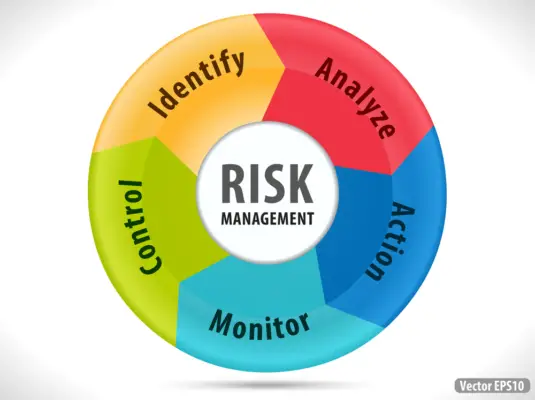A Risk Assessment Mental Health Template is a specialized tool designed to evaluate and manage risks associated with mental health, particularly in therapeutic, healthcare, or workplace settings.
It includes various factors contributing to mental health challenges, such as stressors, personal history, current mental state, environmental influences, and support systems.
The template usually contains sections like:
- Identification of Individual: Including details about the person’s age, diagnosis, treatment history, etc.
- Assessment of Risk Factors: Including potential triggers or stressors, history of self-harm or suicidal thoughts, substance abuse, etc.
- Current Mental State Evaluation: Utilizing standardized scales or clinical judgment to gauge symptoms or distress levels.
- Environmental and Support Assessment: Examining factors such as living conditions, support from family and friends, workplace environment, etc.
- Risk Level Determination: Based on the gathered information, categorise the risk level into high, medium, or low.
- Mitigation and Management Strategies: Listing interventions, support, and treatment plans customized to the assessed risk level.
- Monitoring and Review Plans: Continuous evaluation of the risk and adjustments to the plan as needed.
This Risk Assessment Mental Health Template helps mental health professionals, managers, and support teams systematically and effectively address mental health concerns, ensuring proper care, interventions, and support.
It can be essential for creating individualized care plans, crisis intervention, or developing workplace mental health policies.
This article presents a comprehensive risk assessment template for mental health.
The purpose of this template is to provide a structured and systematic approach to evaluating and managing risks associated with mental health issues.
Examine the historical context of mental health, identifying risk factors, and utilizing a rating and evaluation system, this template aims to enhance the accuracy and effectiveness of risk assessment in mental health settings.
This article will explore the template’s components and discuss its potential implications for mental health professionals.

Purpose of Risk Assessment Template
The scope of the Risk Assessment Template for mental health is multifaceted and comprehensive.
Firstly, it provides a structured framework for evaluating and identifying potential risks in mental health settings. This includes assessing potential harm to patients, staff, and the environment.
Secondly, the template facilitates the systematic collection and documentation of relevant information, ensuring a standardized approach to risk assessment.
Lastly, the template aids in developing effective risk management strategies and interventions, promoting individuals’ overall safety and well-being in mental health care.
Scope of the Template
A clear definition of the template’s scope is essential for efficient risk assessment in mental health.
The scope of the template refers to the specific areas and factors that the template covers in assessing the degree of risk in individuals with mental health issues.
Here are three important aspects of the template’s scope:
- Risks and Treatments: The template should address many risks, including self-harm, history of violence, and other potentially harmful events. It should also consider the effectiveness of different treatments in managing these risks.
- Comprehensive Assessment: The template should provide a comprehensive assessment of an individual’s mental health issues, considering factors such as symptoms, past psychiatric history, and family history. This holistic approach helps in accurately evaluating the degree of risk.
- Risk Rating: The template should incorporate a standardized system for rating risks, providing a clear and objective measure of the level of risk. This allows mental health professionals to prioritize interventions and allocate resources effectively.
History of Mental Health Issues
This will focus on three key points related to mental health issues: types of mental health issues, adverse life events, and unacceptable living conditions.
Understanding the various mental health issues is crucial to providing appropriate care and support.
Adverse life events, such as trauma or loss, can significantly impact an individual’s mental well-being.
Additionally, living in unacceptable conditions, such as overcrowding or lack of basic resources, can contribute to developing or exacerbating mental health issues.
Types of Mental Health Issues
Various mental health issues can be classified into different types based on their symptoms and characteristics. Mental health professionals need to have a clear understanding of these types to provide effective treatment and support.
Some common types of mental health issues include:
- Mood Disorders: These disorders involve disturbances in mood, such as depression or bipolar disorder. Individuals with mood disorders may experience persistent sadness, hopelessness, and loss of interest in activities.
- Anxiety Disorders: Anxiety disorders are characterized by excessive worry, fear, and avoidance. Conditions such as generalized anxiety disorder, panic disorder, and phobias fall under this category.
- Psychotic Disorders: Psychotic disorders involve losing contact with reality and may include symptoms such as hallucinations and delusions. Schizophrenia is an example of a psychotic disorder.
Understanding mental health issues allows professionals to conduct a comprehensive risk assessment.
This assessment helps determine the current risk and identify any risk of violence, emotional abuse, or other forms of abuse.
Adverse Life Events
Adverse life events, such as traumatic experiences or significant losses, have been found to be associated with the development of mental health issues. Understanding the impact of adverse life events is crucial in assessing an individual’s mental health risk profile.
When conducting a risk assessment, it is essential to consider the individual’s family history, as certain psychiatric disorders may have a genetic component. Additionally, the presence of current symptoms and psychiatric symptoms should be thoroughly evaluated.
A comprehensive picture of the individual’s mental health status can be obtained through a mental status examination, which assesses cognitive functioning, mood, and behaviour.
Incorporating psychiatric risk assessments and considering the impact of adverse life events, mental health professionals can better understand an individual’s mental health risk profile and provide appropriate interventions and support.
Unacceptable Living Conditions
Unacceptable living conditions can harm an individual’s overall well-being and may contribute to developing physical and mental health problems.
Conducting accurate and adequate risk assessments to identify potential mental health risks associated with living in such conditions is important.
Risk management strategies can then be implemented to mitigate these risks and promote better mental health outcomes.
To highlight the significance of unacceptable living conditions on mental health, the following table provides an overview of the potential impact on various aspects of an individual’s well-being:
| Aspect | Potential Impact |
|---|---|
| Physical Health | Exposure to pollutants, lack of hygiene facilities |
| Psychological | Increased stress levels, feelings of insecurity |
| Social | Limited social support networks, isolation |
| Economic | Financial strain, limited access to resources |
| Environmental | Noise pollution, lack of green spaces |
Risk Factors
This will focus on several key points for assessing and diagnosing mental health issues.
Firstly, it is important to consider an individual’s physical health as it can significantly impact their mental well-being.
This includes evaluating their current status, conducting a mental status examination to assess their cognitive and emotional functioning, and gathering information about their medical history.
Additionally, psychiatric practice and diagnosis are crucial in determining the appropriate treatment and support for individuals experiencing mental health issues.
Physical Health
Furthermore, it is crucial to consider the impact of physical health on mental well-being when conducting risk assessments in the context of mental health. Physical health status plays a significant role in determining an individual’s mental well-being.
Several studies have established a correlation between physical health problems and the development or worsening of mental health symptoms.
For example, individuals with chronic physical conditions such as diabetes or heart disease may experience increased levels of stress and anxiety, which can contribute to the manifestation of mental health symptoms.
Physical health problems can also lead to reduced functioning and quality of life, increasing the risk of developing suicidal ideation.
Including a detailed physical health evaluation as part of a comprehensive risk assessment is important, especially for individuals with pre-existing conditions.
This assessment should take into account the current status of physical health, symptoms experienced, and any potential risks or complications that may arise. Carers at risk of physical health problems are particularly vulnerable and should also be considered in the risk assessment.
Therefore, it is recommended to download the free workplace mental well-being risk assessment template, which includes a section dedicated to assessing physical health factors.
A more comprehensive evaluation of risk factors can be achieved by incorporating an effective stress risk assessment and considering physical health in the context of enterprise risk management.

Current Status
A comprehensive evaluation of an individual’s well-being should consider their current status, including physical health, symptoms experienced, and potential risks or complications.
This evaluation is crucial in developing a risk assessment mental health template, as it provides a foundation for understanding the patient’s overall health and identifying potential risk factors.
Assessing the individual’s current status, healthcare professionals can generate personalized risk profiles that consider physical and mental health issues.
Diagnostic tools and assessments can be utilized to identify and measure potential risk factors, allowing for the development of optimal treatment plans.
This comprehensive approach ensures that medical professionals are equipped with the necessary information to effectively address the patient’s health needs and provide appropriate care.
Mental Status Examination
Evaluating an individual’s mental status is crucial to their overall well-being assessment, providing valuable insight into their cognitive functioning and emotional state.
A mental status examination (MSE) is a systematic assessment of a person’s mental health and cognitive abilities. It involves gathering information about the individual’s appearance, behavior, speech, mood, affect, thought processes, and cognitive functioning.
The MSE helps identify any abnormalities or deviations from the norm, which can then guide further assessment and treatment planning.
When conducting a risk assessment mental health template, including an MSE to gather comprehensive information about the individual’s mental state is important.
This can aid in identifying potential risk factors for mental health issues, such as a history of abuse during childhood, a history of alcohol or substance abuse, or other factors that may contribute to their current mental health status.
Medical History
When gathering comprehensive information about an individual’s mental state, it is important to include an evaluation of their medical history. The medical history can provide valuable insights into potential risk factors and inform the risk assessment mental health template.
It is essential to inquire about any history of abuse in childhood, including physical and financial abuse. Such experiences can have long-lasting effects on an individual’s mental well-being and may influence their current treatment needs.
Additionally, understanding the individual’s medical history can help make informed decisions about treatment approaches. It provides essential tools for clinicians to assess the individual’s overall health and identify any hygienic practices or medical conditions that may contribute to their mental health concerns.
Consequently, incorporating the individual’s medical history into the risk assessment mental health template is a handy tool for comprehensive evaluation and treatment planning.
Psychiatric Practice and Diagnosis
Psychiatric practice plays a crucial role in diagnosing and treating mental health issues. When using a risk assessment mental health template, psychiatrists systematically evaluate patients and identify potential risks.
This involves considering various factors, such as the patient’s medical history, including any history of abuse or difficult life events.
To ensure a comprehensive assessment, psychiatrists utilize various diagnostic tools and techniques. This may involve conducting interviews, administering psychological tests, and observing the patient’s behavior.
To accurately diagnose mental health conditions, psychiatrists rely on established classification systems such as the Diagnostic and Statistical Manual of Mental Disorders (DSM).
During the assessment process, psychiatrists also evaluate the patient’s hygiene and adherence to self-care routines. Additionally, they assess the presence of any self-harm rule or suicidal ideation.
Thoroughly examining these aspects, psychiatrists aim to provide a holistic understanding of the patient’s mental health status and develop appropriate treatment plans.
Risk Rating and Evaluation
Obtaining a comprehensive picture of their situation is crucial to assess a person’s risk rating and evaluate their mental health.
This includes gathering information about their history, current circumstances, and potential risk factors.
One important aspect to consider in this comprehensive picture is the presence of suicidal ideation, a significant indicator of the individual’s mental state and potential risk for self-harm.
Comprehensive Picture
The comprehensive picture of risk assessment in mental health involves gathering and analyzing various sources of information to assess the individual’s potential risks and develop appropriate interventions.
Risk assessment in mental health is crucial for identifying and managing potential harm to individuals and others. A focus on risk is essential in mental health settings to ensure the safety and well-being of patients.
Generic workplace risk assessments can be adapted to mental health settings to identify potential hazards and develop mitigation strategies.
Additionally, assessing for potential abuse, such as physical, emotional, or sexual, is an important aspect of risk assessment in mental health.
Assessing an individual’s concordance with treatment and ability to adhere to prescribed interventions can also provide valuable information for risk assessment.
In addition, evaluating poor hygiene practices and self-harm risk using tools like the Manchester Self-Harm Rule and the Australian Family Physician Mental Health Assessment can aid in comprehensive risk assessment in mental health.
Suicidal Ideation
Suicidal ideation is a significant concern in mental health settings, as it indicates an individual’s thoughts and intentions related to self-harm.
Mental health professionals employ various methods to assess and understand the presence, severity, and context of suicidal ideation.
One commonly used approach is standardized self-report measures, such as the Beck Scale for Suicidal Ideation (SSI), which assesses the intensity of suicidal thoughts.
Additionally, clinicians may conduct structured interviews to gather detailed information about the frequency, duration, and triggers of suicidal thoughts.
This information is crucial for developing appropriate treatment plans and interventions to mitigate the risk of self-harm.
However, it is important to note that suicidal ideation is a complex phenomenon influenced by various factors, including underlying mental health conditions, past experiences, and social support.
Therefore, a comprehensive assessment is necessary to obtain a holistic understanding of an individual’s suicidal ideation.
Frequently Asked Questions
What Are the Legal Implications of Not Conducting a Risk Assessment for Mental Health Issues?
The legal implications of not conducting a risk assessment for mental health issues may include potential liability for negligence, violation of workplace health and safety regulations, and failure to provide a safe and healthy work environment for employees.
How Can the Risk Assessment Template Be Adapted for Different Mental Health Conditions?
Adapting a risk assessment template for different mental health conditions requires a comprehensive understanding of the specific symptoms, challenges, and risks associated with each condition, which can inform the development of tailored assessment criteria and mitigation strategies.
Are There Any Specific Guidelines or Regulations Mental Health Professionals Should Follow When Using This Risk Assessment Template?
Mental health professionals should follow specific guidelines and regulations when using the risk assessment template.
These guidelines ensure the assessment is standardised and ethical, promoting patient safety and effective risk management.
Can This Risk Assessment Template Be Used for Both Inpatient and Outpatient Settings?
This risk assessment template applies to both inpatient and outpatient settings. However, further research is needed to determine if any modifications are required for each specific setting to ensure an accurate assessment of mental health risks.
Are Any Limitations or Potential Biases Associated With Using a Risk Assessment Template for Mental Health Issues?
Using a risk assessment template for mental health issues may have limitations and potential biases.
These may include reliance on subjective information, lack of standardized criteria, and the potential for over- or underestimation of risk.

Conclusion
Risk assessment templates for mental health play a crucial role in evaluating the risks associated with individuals suffering from mental health issues.
These templates help professionals assess the risk factors that contribute to potential harm to individuals and others.
Professionals can develop appropriate interventions and support systems to mitigate potential harm by systematically identifying and evaluating these risks.
Understanding the history of mental health issues and recognizing the various risk factors are fundamental in accurately assessing and rating the risks involved.

Chris Ekai is a Risk Management expert with over 10 years of experience in the field. He has a Master’s(MSc) degree in Risk Management from University of Portsmouth and is a CPA and Finance professional. He currently works as a Content Manager at Risk Publishing, writing about Enterprise Risk Management, Business Continuity Management and Project Management.

